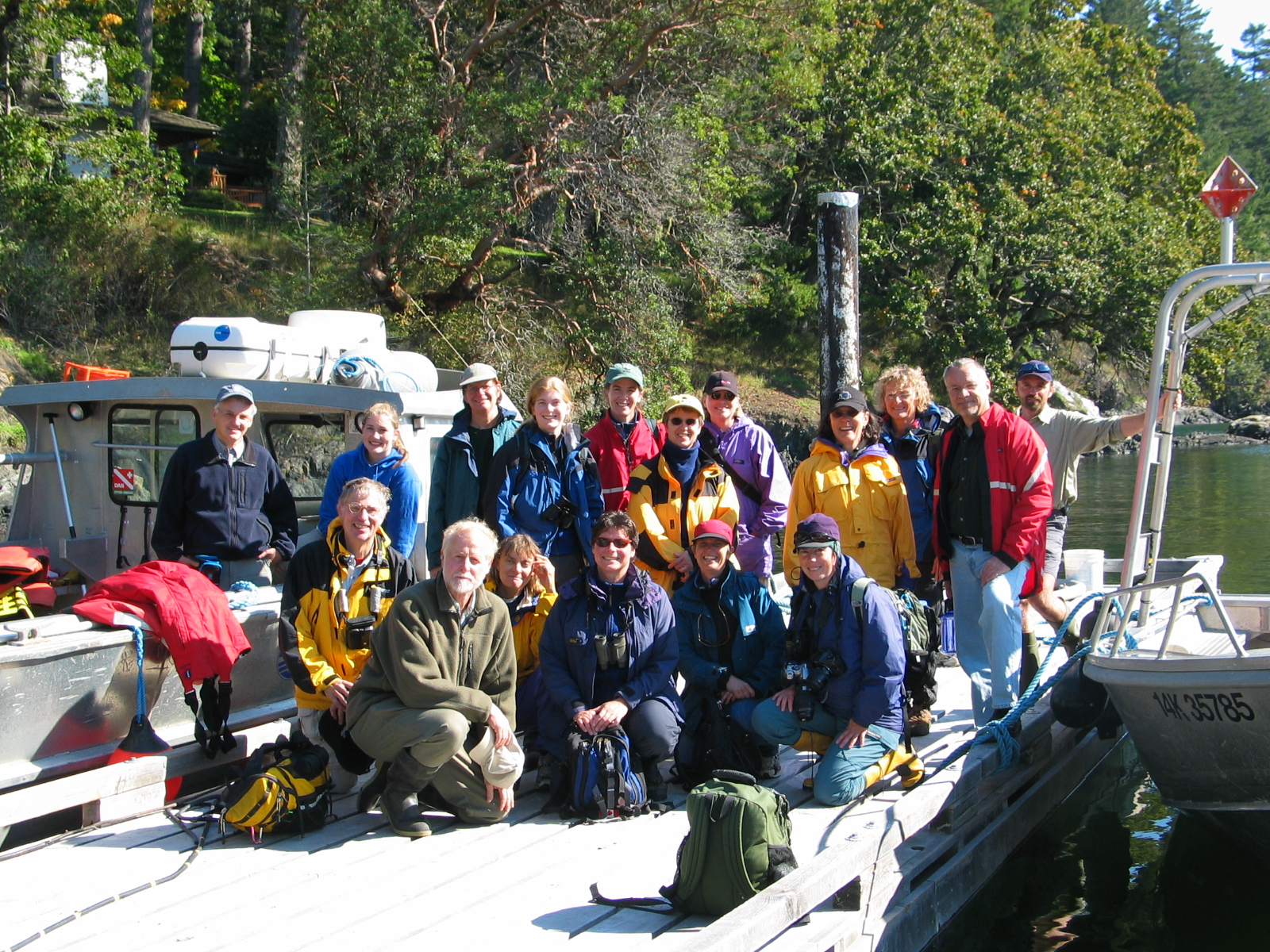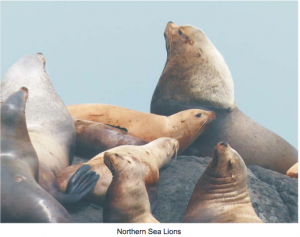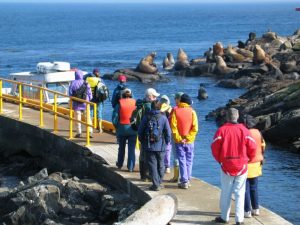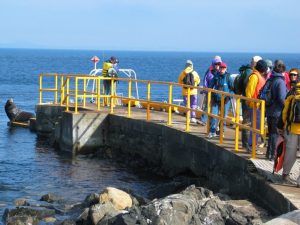Link to an article in the FoER Newsletter by Aziza Cooper on the Race Rocks Field Trip of Friends of Ecological reserves, May 12, 2013. http://ecoreserves.bc.ca/?p=17947
Tag Archives: Friends of Ecological Reserves
Race Rocks Ecological Reserve: An Unusual Model of Reserve Management
Race Rocks Ecological Reserve: An Unusual Model of Reserve Management….By Garry Fletcher
 On October 3rd, this group of the Friends of Ecological Reserves made a trip to Race Rocks in the Pearson College Boats with Garry Fletcher and Chris Blondeau, Chris is the Pearson College Sea-front Coordinator and Operations Manager of Race Rocks. This fall has been remarkable in the consistently high population of Northern and California Sea Lions and high populations of seagulls and Cormorants on the islands, so it was a good time for the visit after the nesting season.
On October 3rd, this group of the Friends of Ecological Reserves made a trip to Race Rocks in the Pearson College Boats with Garry Fletcher and Chris Blondeau, Chris is the Pearson College Sea-front Coordinator and Operations Manager of Race Rocks. This fall has been remarkable in the consistently high population of Northern and California Sea Lions and high populations of seagulls and Cormorants on the islands, so it was a good time for the visit after the nesting season.
As a result of questions from members on the trip, I thought it might be useful to update everyone who is interested in the events on the reserve with the present state of the management and financing of Race Rocks. Lester Pearson College assumed the full management of the facilities and staff at Race Rocks in the fall of 1997. The light and foghorn had been automated, and the Canadian Coastguard was retiring the light keepers, Mike and Carol Slater. All the facilities except the light tower and foghorn were returned to BC Lands. An agreement was reached whereby the island was leased for long-term management and continued use for education and research by Lester Pearson College. In 2001, BC Parks was able to expand the Ecological reserve, which had previously omitted the large island with the facilities, to include all the remaining land area of Great Race Island in addition to the original 256 hectares of Islands and water to the 36 meter depth.
The Slaters were hired by Lester Pearson College to stay on as Ecological Reserve Guardians, providing security and keeping the diesel generator running, thus ensuring that the college could have full use of the other buildings and facilities on the island. In addition, the daily collection of air and sea temperature and salinity data was continued, maintaining a valuable long-term database. An anonymous donor from Ontario met operating costs for the first year. Each year after a special effort has been made by the college to secure the operating funds to carry through to keep the island open. By the year 2000, a proposal was made to the Millennium Partners Fund of Canada, to help fund the installation of Internet facilities and microwave to provide a link to the College for the transmission of Broadband Internet. A number of partners and sponsors who continue to assist are referenced on the website. Each year since, the college has had to seek funding from a number of sources to keep the island going, since government funding for parks is very hard to come by.
One of the higher costs incurred in the operation is the diesel fuel to run the island’s generators. Last year over $20,000 went into this, so it has been an aim for some time to incorporate alternate energy technology in the operation. It is with great relief that I can now tell you that our efforts are paying off as we now have a company, Clean Current Power Inc. securing the complete funding and installing at Race Rocks in the next year, an underwater tidal current generator which will have negligible negative environmental impacts. Although a research prototype, this should generate all the required electrical needs for the island. The diesel generators will become backup utilities.
BC Parks has made a good effort to help with some of the facility costs on the island. Keep in mind that most Ecological Reserves do not have dwellings and facilities such as docks and workshops, so they have provided the funds to mitigate the effects of human sewage from the two houses, with the installation of composting toilets in 2003. The Coast guard, although having no direct financial commitment, has provided technical assistance when necessary. In 2000 an Advisory Board was set up by DFO for the formation of an Official Marine Protected Area under the Oceans Act. The Ecological Reserve is still a Marine Protected Area Designate, since final treaty negotiations have put a hold on complete Marine Protected Area Status. This has meant that no federal funds are available for maintaining the Protected Area.
It is a difficult job securing at least $80,000 a year to keep the island operational. What is really needed is an endowment, and this we are determined to seek over the next few years. Keeping observers and cameras on the island has in the last few years served to keep the many users of the area accountable, so that the ecological integrity of the resource may be sustained. On the home page of racerocks.com is written: “we humans are never content just to know that a special area exists on this earth. We strive to be there, to touch, to feel, to consume. But therein lies the paradox. In so doing we can destroy the very thing we love.” The aim of the racerocks.com program has always been to make this special ecosystem available to all through the Internet. We have been fortunate to have this opportunity to establish a window into the daily lives of the creatures of a rugged marine island ecosystem. We just hope that we can continue to make the amazing life of these islands available to all. This spring with the further assistance of Apple Computer, we upgraded our computers and added a new 340 degree robotic camera which provides a much more thorough survey of many parts of the islands from your own computer.
We are grateful for any assistance in the funding of the program at Race Rocks. One can pay by cheque or credit card to The Race Rocks Operating Fund c/o Lester B. Pearson College, 650 Pearson College Drive. (250) 391-2411. A tax receipt will be provided for amounts over $25.00
This article appeared in the Winter 2004 edition of the Friends of Ecological Reserves Newsmagazine ; The LOG
Garry Fletcher (garryf(use the at sign).gmail.com) the volunteer warden for Race Rocks Ecological Reserve is the Educational Director of racerocks.com.In 2004 he retired after teaching for 36 years. The last 28 of those years have been spent in Biology, Environmental Systems and the SCUBA diving program at Lester B. Pearson College of the Pacific. Garry now continues with his work on https://www.racerocks.ca and serves as a consultant from his home in Metchosin.



